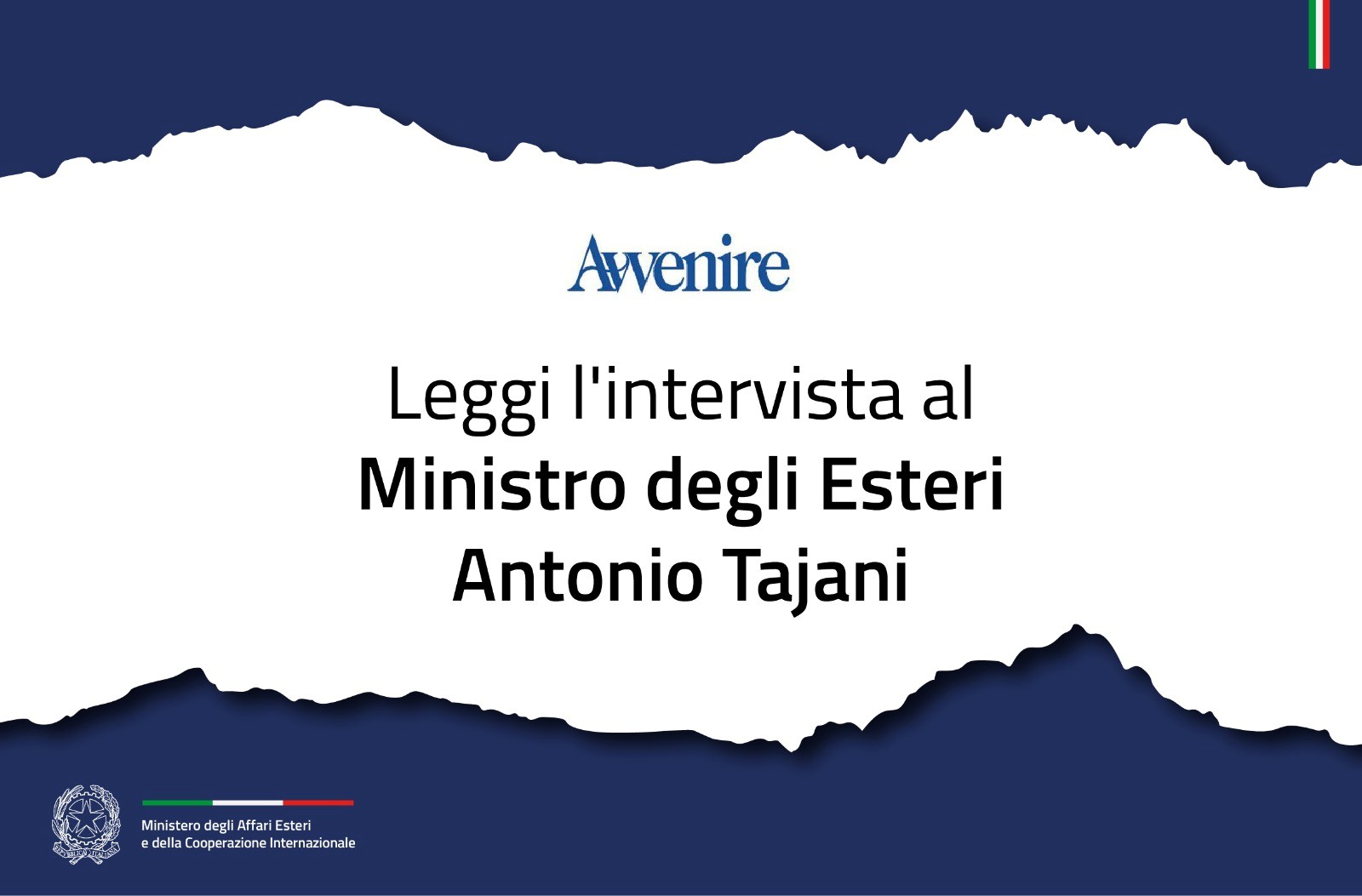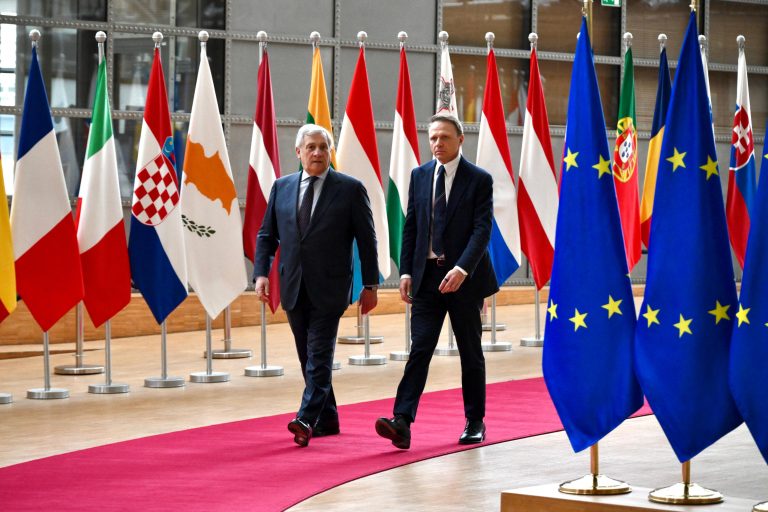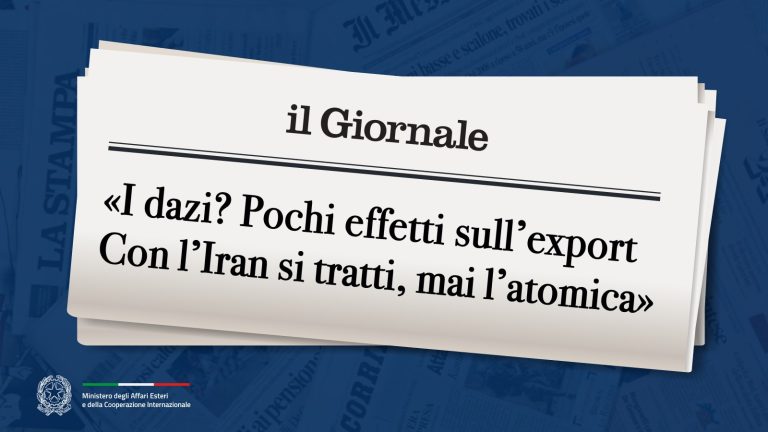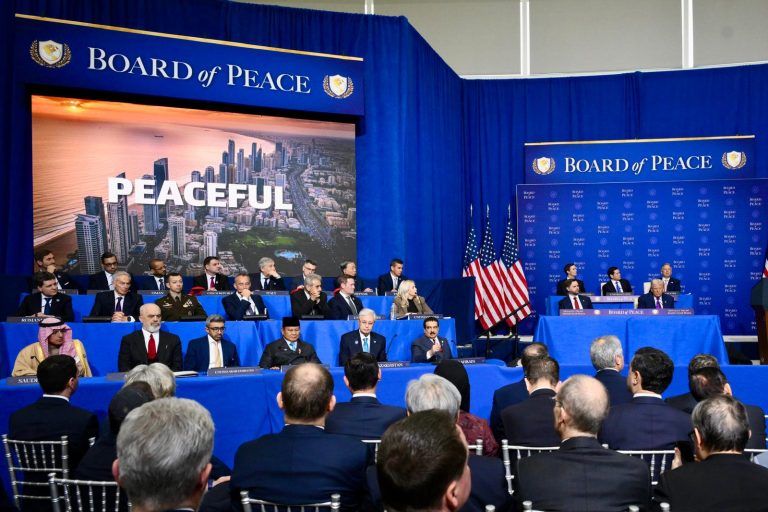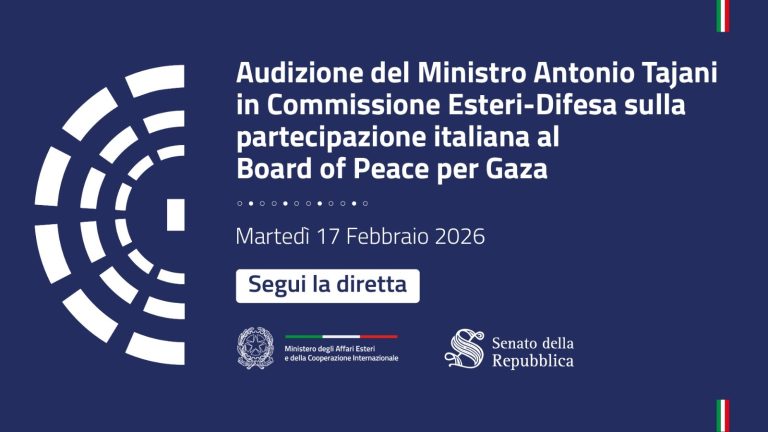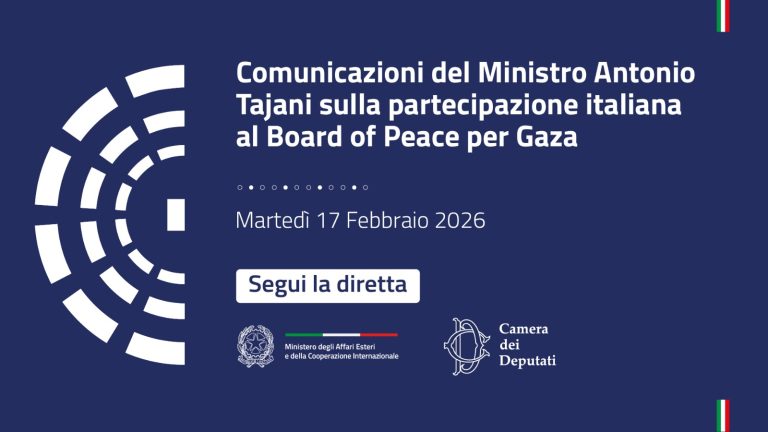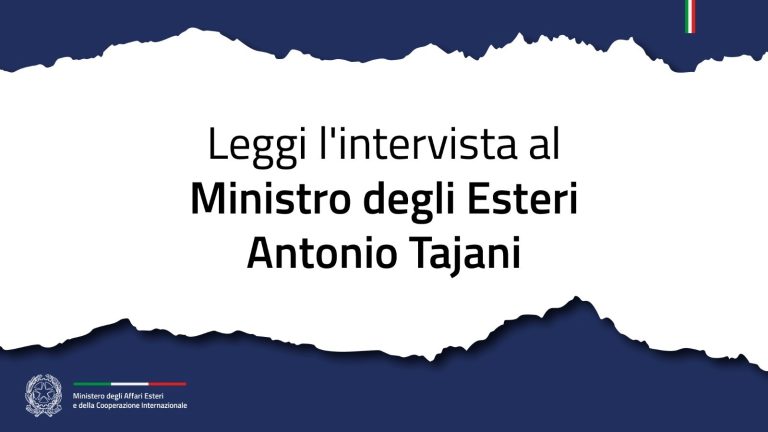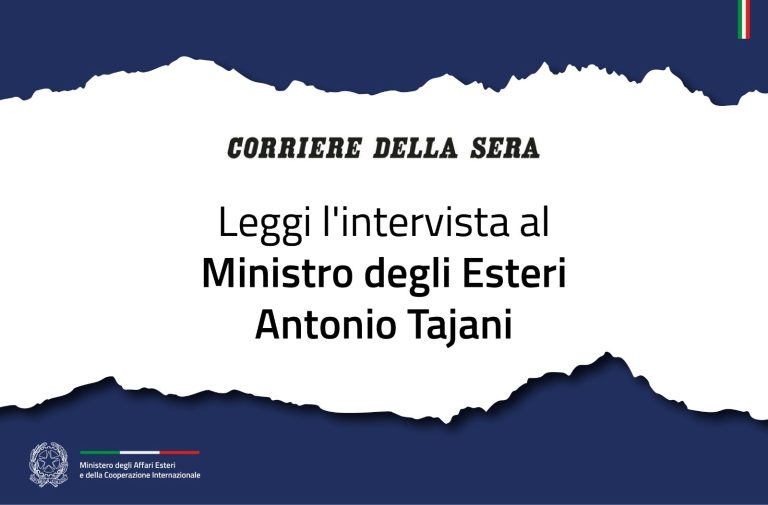Minister Antonio Tajani, just hours before its signing on Monday, what is your assessment of this initial agreement? Is it not yet a true, consolidated peace?
It is not over, but the foundations for an important regional agreement have been laid. Much work remains to be done to turn this truce into a lasting peace. I discussed this in a long phone call with US Secretary of State Marco Rubio. However, I am optimistic; I see a renewed determination between the parties. Let us recall that President Trump is aiming for the Nobel Peace Prize, all the more so in a year’s time. We, as Italy, are ready to do our part, on the humanitarian level, in the reconstruction of the Gaza Strip, in consolidating the situation, and also on the military level, should it be necessary. But we are still in the preliminary phase.
So let us start with the humanitarian emergency. How is the government preparing to face it?
Aid trucks are now entering again Gaza. We will strengthen the Italian “Food for Gaza” operation. For this reason, we are collecting food supplies in collaboration with Coldiretti, Confagricoltura, and Confcooperative. But above all, there is the healthcare issue, which needs to be addressed in collaboration with international institutions and also with Italian hospitals. The Foreign Ministry’s Development Cooperation is signing agreements between the Bambino Gesù Children’s Hospital in Rome and the Italian hospitals in Amman and Krak, Jordan. We are also thinking of involving the Italian hospital in Cairo. The goal is to strengthen care for sick children, amputees, and the wounded in Gaza, assisting them in the region with Italian and even Arab doctors. We have other ideas, such as supporting the Gaza hospitals with our own hospitals, but we want to coordinate with friendly countries and the EU both to obtain more funding and to share a massive and sustained effort.
Let us revert to the negotiations: was there a factor, a decisive event that brought about a turning point in the negotiations? Probably the Israeli bombings of Doha, the capital of Qatar, a US traditional ally?
Everything contributed. After running the risk of a severe worsening of the situation, everyone decided to increase pressure on Israel and the Palestinians: the United States, then Qatar, Egypt, and Turkey, with whom I have worked continuously. Certainly, neither the Flotilla nor protests in the streets contributed.
Isn’t the centre-right excessively “malicious” toward the maritime expedition that ended with the arrest and expulsion of activists, and toward the street protests in Italy, as in other countries? Ultimately, they helped raise public awareness.
They certainly did. But it cannot be said that such incidents solved the problems, as Cardinal Pizzaballa also emphasized. The strikes, in particular, created hardship and disruption for the Italian population and did not help Gaza. More significantly, our motion on Italian support for President Trump’s plan, adopted in Parliament without a single contrary vote, demonstrated the unity of Italian politicians. Likewise, we will also provide our contribution, starting Wednesday in Naples, with the “Mediterranean Dialogues.”
What limits do you see in this first agreement?
The prerequisite is to disarm Hamas. It is essential, we must ensure it is implemented; everything stems from it. After what it did on 7 October, 2023, Hamas cannot be part of the future Palestinian governance.
Isn’t a paradox that, after two years of such a brutal war, the Israeli government negotiated directly with Hamas, thus granting a sort of indirect recognition to these terrorists?
Peace is made with the enemy and between the parties involved. We need to be pragmatic at these turning points in history. It is also clear that a new Palestinian leadership will be needed. We are placing great emphasis and relying on the PNA, the National Authority, which, however, must renew itself. We are also working towards this goal: with the Minister of Universities, Anna Maria Bernini, 150 scholarships have been activated for young Palestinians, and the first have already arrived. In October 2024, at the G7 Cooperation Ministers’ Meeting in Pescara, before Lebanese, Palestinian, and Israeli Ministers and diplomats, I submitted a preliminary plan to Palestinian Prime Minister Mustafa: a €5 million grant to the UN to study, in Ramallah, with researchers from the University of Venice IUAV and together with the Palestinian Authority, the way to rebuild the political foundations of the Palestinian National Authority and Gaza.
Is respect for the future governance of Gaza another problematic issue? Will Italy contribute with its military forces?
I have always thought that an international force is absolutely necessary for the territory. If there are the necessary conditions, we could also contribute with military forces: the Carabinieri are already in Jericho and will soon return to the Rafah crossing.
Does the new framework change anything for the Meloni government regarding the recognition of Palestine?
It speeds things up. We need to lay the foundations for a Palestinian State, which shall be the culmination of this process, and involves the territories of Gaza and the West Bank.
Regarding Trump, the driving force behind this agreement, has there been excessive superficiality -so to speak -from the circles that are now somewhat “taken aback” by the truce?
There were and there are still biases and misconceptions, due to ideology, and the perennial temptation to “be partisan.” But this is no longer an electoral contest. Peace is a supreme good, and we need to be unbiased and objective in evaluating international actions, even those taken by a political adversary. President Trump has undoubtedly given the process a boost, and this deserves full recognition: anyone who fails to do so is exposing a bias that is a personal limitation.
What about Europe? Is it once again on the sidelines of major international processes?
It is true that Europe has not been sufficiently courageous. However, this should not become a pretext to attack it, but rather a push to make it increasingly become a political entity, with a single foreign policy. In order to achieve this, we need strong national leaders, but also leaders with an international vision.
Was French President Macron, now in trouble at home with his national government, one of these?
France is going through a complex period about which there is nothing to rejoice. I therefore hope it will be resolved, regardless of whether he is a likable or unlikable leader. In short, we cannot smile like Sarkozy; this is not how you live in a community: everyone converging on shared values and acting accordingly is the epitome and essence of the European spirit.
What about Ukraine? President Zelensky said that now President Trump – if he wants – can stop also Russia. Do you agree?
Peace in Ukraine still seems far away. I hope, however, that some progress will be made, keeping in mind that Putin is always aiming to conquer new territories. He wants to show Russians that he will not give up, and he faces severe challenges in reconverting the war economy he has built up over the years, as well as managing fellow countrymen who, as soldiers, earn up to three times their normal wages.
Finally, let us turn to the case of Alberto Trentini, the Venetian humanitarian worker detained in Venezuelan prisons for 11 months. Are there any developments?
Trentini has had the possibility of calling his mother for the third time in recent days and reassuring her about his condition. We hope he can receive regular consular visits and be released from prison as soon as possible. It is not easy, but we are doing everything we can to achieve this result.

